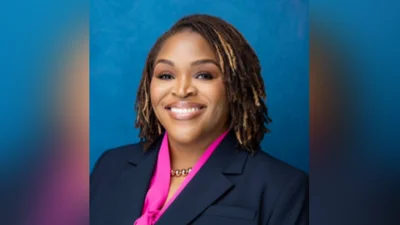NIFA is committed to developing a STEM workforce that is representative of current and projected demographics in America. A diverse workforce will drive the continued success of both agriculture and the U.S. economy as well as serving the nation’s many varied communities. NIFA supports this future workforce through specialized partnerships and programs that build institutional capacity, facilitate access to higher education and provide experiential learning opportunities in the community.
A number of NIFA programs provide critical support to the nation’s 1890 Land-grant Colleges and Universities as they work to bolster the diversity of the nation’s STEM workforce. They include:
- 1890 Capacity Funding
- From Learning to Leading: Cultivating the Next Generation of Diverse Food and Agriculture Professionals Program
- Scholarships for Students at 1890 Institutions
- 1890 Institution Teaching, Research, and Extension Capacity Building Grants Program
- 1890 Facilities Grants Program
- Alcorn State University in Mississippi conducted three two-day National 4-H STEM Challenge camps titled “Explorers of the Deep.” Held in elementary, middle and high schools in southwest Mississippi, the camps focused on the mysteries and adventures of ocean exploration. More than 950 young people developed inquiry, observational and problem-solving skills while they made discoveries and discovered their own STEM identities.
- Thanks to North Carolina A&T State University, 16 young people attended NASA Space Camp in 2022 after a two-year hiatus because of the pandemic. Held at the U.S. Space & Rocket Center in Huntsville, Alabama, these week-long camps give youth the chance to learn robotics, teamwork, leadership and critical thinking skills and experience real-world STEM applications.
- A 4-H Stem Festival hosted by the University of Maryland Eastern Shore used interactive activities to get youths involved. Aimed at getting youth K-12 interested in STEM, the free event drew 116 participants and their family members. Participants looked at zooplankton through a microscope, operated remote controlled sphere robots and VEX robots, explored nutrition by making a smoothie on a blender bike, among other hands-on activities.
- In 2022, more than 3,000 youths from 31 school districts attended Virtual STEM Day sponsored by Alabama A&M University. Youth were introduced to the engineering design process and created catapults that accurately and consistently launched a projectile into a target or as far away as possible. In addition, a Mobile STEM Lab introduces youth ages 5 to 18 to real-world and hands-on learning experiences. These initiatives allow the 4-H team to not only reach underserved youth, but to inspire the next generation of scientists and technology experts.
- West Virginia State University 4-H’s Sowing Young Sprouts (SYS) program combines inquiry-based science, real-world technology and outdoor education to teach elementary students to become problem-solvers and live a sustainable lifestyle while learning about natural sciences and entrepreneurship. Additionally, SYS recently launched an at-home career discovery kit project for children aged 10-12 years old that is available in four counties. Participants receive hands-on activities and learning resources via mail, allowing them to explore different careers in agriculture and science.
Original source can be found here.








